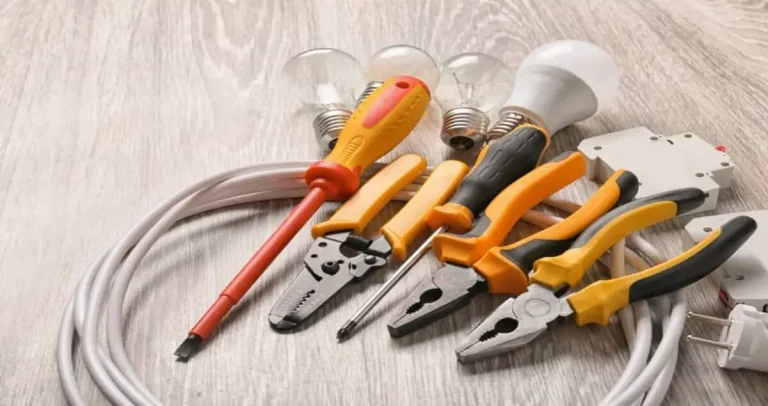In the realm of real estate and housing, Accessory Dwelling Units (ADUs) have gained significant popularity in recent years. These secondary living spaces, often found on the same property as a primary residence, can serve various purposes such as housing family members, generating rental income, or simply expanding living space. However, before embarking on the journey of constructing or renovating an ADU, it’s crucial to grasp the ADU Electrical Requirements to ensure safety, compliance with regulations, and a smoothly functioning living space.
The Basics of ADU Electrical Requirements
Before delving into the intricacies of ADU electrical systems, let’s establish a fundamental understanding of what these requirements entail.
What Are ADU Electrical Requirements?
ADU Electrical Requirements refer to the set of guidelines, codes, and regulations that dictate how the electrical system in an Accessory Dwelling Unit should be designed, installed, and maintained. These requirements aim to ensure the safety of occupants, protect the integrity of the electrical infrastructure, and adhere to local building codes.
The Role of Building Codes and Regulations
Building codes and regulations form the backbone of ADU Electrical Requirements. These codes are established at both the national and local levels to provide a standardized framework for electrical installations. They cover various aspects, including wiring, circuitry, outlets, fixtures, and safety measures.
Safety Considerations in ADU Electrical Systems
Safety should always be the top priority when dealing with electrical systems in ADUs. Faulty electrical work can lead to fires, electrocution, or other hazardous situations. Therefore, understanding and implementing safety measures is paramount.
Researching Local Regulations
One of the key aspects of ADU Electrical Requirements is complying with local regulations. Local building authorities play a crucial role in determining the specific requirements for ADUs in your area.
Importance of Local Compliance
Local compliance is essential because ADU regulations can vary significantly from one place to another. Understanding and adhering to local requirements can help you avoid legal issues, fines, and project delays.
Contacting Local Authorities
To get a clear understanding of the specific ADU Electrical Requirements in your locality, it’s advisable to reach out to the local building department or zoning office. They can provide you with the necessary information and guidance.
Understanding Zoning and Permitting
Zoning and permitting requirements can also impact ADU Electrical Requirements. Different zones may have specific rules regarding the size, location, and even the existence of ADUs. Additionally, you may need permits for electrical work, so it’s essential to be aware of the processes involved.
Electrical Panel Upgrades
One critical aspect of ADU Electrical Requirements is assessing and, if necessary, upgrading the electrical panel.
Evaluating Existing Electrical Service
Begin by evaluating the existing electrical service in your property. Determine whether your current electrical panel can handle the increased electrical load from the ADU. If it can’t, an upgrade may be necessary.
When Is an Upgrade Necessary?
Upgrading the electrical panel is typically required when the existing service is inadequate to meet the additional demands of the ADU. Factors like the size of the ADU, the number of appliances, and heating or cooling systems will influence whether an upgrade is needed.
The Process of Upgrading the Electrical Panel
The process of upgrading the electrical panel involves several steps. It includes obtaining the necessary permits, hiring a licensed electrician, and ensuring that the new panel meets current code requirements.
Wiring and Circuits
Proper wiring and circuits are fundamental components of ADU Electrical Requirements.
Types of Wiring Used in ADUs
Different types of wiring may be used in ADUs, including Romex, BX, or conduit wiring. The choice of wiring depends on factors like local codes and the specific needs of your ADU.
Circuit Requirements for ADUs
ADUs must have dedicated circuits for various appliances and systems, such as lighting, heating, and kitchen appliances. Understanding the specific circuit requirements is crucial to ensure a safe and functional electrical system.
Proper Grounding and Bonding
Grounding and bonding are essential for electrical safety. These measures help prevent electrical shock and reduce the risk of fires. Ensuring that your ADU’s electrical system is properly grounded and bonded is a critical part of compliance with ADU Electrical Requirements.
Electrical Outlets and Fixtures
The placement and type of electrical outlets and fixtures are important considerations when it comes to ADU Electrical Requirements.
Location and Quantity of Outlets
ADUs should have an adequate number of electrical outlets to meet the needs of occupants. Understanding where to place outlets for convenience and safety is crucial.
Types of Lighting Fixtures
Selecting the right lighting fixtures can improve the functionality and aesthetics of your ADU. LED lighting, recessed lighting, and pendant lights are popular choices that can enhance the ambiance of the space.
GFCI and AFCI Receptacles
Ground Fault Circuit Interrupters (GFCIs) and Arc Fault Circuit Interrupters (AFCIs) are safety devices that help protect against electrical shock and fires. Knowing when and where to install these receptacles is essential to meet ADU Electrical Requirements.
Understanding Load Calculations
Calculating the electrical load of your ADU is a critical step in meeting ADU Electrical Requirements.
Determining Electrical Load
The electrical load of an ADU is the total amount of power that it will consume. It’s important to accurately calculate this load to ensure that your electrical system can handle it.
Sizing the Service Entrance
Based on the load calculation, you may need to adjust the size of your service entrance. This involves upgrading the wires and the main breaker to accommodate the electrical demand of the ADU.
Calculating for Appliances and Equipment
ADUs often include appliances like stoves, refrigerators, and HVAC systems. Calculating the load of these appliances is crucial to ensure that your electrical system can operate safely and efficiently.
Electrical Safety Measures
Ensuring the safety of your ADU’s electrical system is of utmost importance.
Fire Safety Precautions
Fire safety measures, such as using fire-resistant wiring and installing smoke detectors, are essential to protect the occupants of your ADU.
Surge Protection
Surge protection devices can safeguard your ADU’s electrical equipment from voltage spikes caused by lightning or other electrical disturbances.
Ensuring Proper Installation
Proper installation of electrical components, from wiring to outlets and fixtures, is crucial to prevent electrical hazards. Hiring a licensed electrician is often the best way to ensure safe and compliant installations.
Hiring a Licensed Electrician
For most ADU electrical work, hiring a licensed electrician is highly recommended.
The Importance of Professional Help
Electrical work can be complex and dangerous. Hiring a licensed electrician ensures that the work is done correctly, safely, and in compliance with ADU Electrical Requirements.
Questions to Ask When Hiring an Electrician
When choosing an electrician for your ADU project, it’s essential to ask the right questions to ensure they are qualified and experienced in ADU electrical installations.
Verification of Credentials
Always verify the credentials and licenses of the electrician you hire. This includes checking for proper licensing, insurance, and references.
Cost Considerations
Understanding the costs associated with ADU electrical work is essential for budgeting your project.
Budgeting for ADU Electrical Work
Create a budget that includes all the electrical components and labor costs. Being prepared financially can help prevent unexpected expenses.
Factors Affecting Costs
Various factors can influence the cost of ADU electrical work, including the complexity of the project, the need for panel upgrades, and the choice of electrical fixtures and appliances.
Potential Cost-Saving Tips
Explore cost-saving measures such as using energy-efficient lighting, appliances, and smart home technology to reduce long-term operating costs.
Inspection and Permitting
Inspection and permitting are critical steps in ensuring compliance with ADU Electrical Requirements.
The Inspection Process
Inspections are typically required at different stages of the electrical installation process. Understanding what to expect during inspections can help you prepare.
Obtaining Necessary Permits
Permitting is a crucial part of the process. Make sure to obtain all the necessary permits before starting any electrical work in your ADU.
Common Inspection Pitfalls
Learn about common issues that can lead to inspection failures, and take steps to avoid them.
Case Studies and Examples
Real-life case studies and examples can provide valuable insights into ADU electrical requirements.
Real-Life ADU Electrical Requirements Examples
Explore real-world examples of ADU electrical installations to gain a better understanding of how to meet requirements effectively.
Lessons Learned from Case Studies
Learn from the experiences of others and apply their lessons to your own ADU project.
Success Stories
Discover success stories where homeowners successfully navigated the ADU electrical requirements and achieved their goals.
Common Mistakes to Avoid
Avoiding common mistakes is crucial to ensuring that your ADU electrical work is safe and compliant.
Electrical Code Violations
Understanding and avoiding common electrical code violations is essential for a successful ADU project.
DIY Pitfalls
While DIY projects can be rewarding, attempting complex electrical work without proper knowledge and experience can lead to costly mistakes.
Inadequate Planning
Inadequate planning can lead to delays, budget overruns, and compliance issues. Take the time to plan your ADU electrical project carefully.
Future-Proofing Your ADU
Thinking ahead and future-proofing your ADU’s electrical system can save you time and money in the long run.
Anticipating Future Electrical Needs
Consider the evolving electrical needs of your ADU and plan for potential expansions or changes.
Sustainable Electrical Solutions
Explore sustainable electrical solutions, such as renewable energy sources and energy-efficient appliances, to reduce your environmental impact.
Incorporating Smart Home Technology
Embrace the convenience and energy efficiency of smart home technology to enhance your ADU’s functionality.
Conclusion
In conclusion, understanding and complying with ADU Electrical Requirements is a crucial step in ensuring the safety, functionality, and legal compliance of your Accessory Dwelling Unit. By researching local regulations, evaluating your electrical panel, addressing wiring and circuitry needs, and prioritizing safety measures, you can successfully navigate the complexities of ADU electrical work. Remember that hiring a licensed electrician and obtaining the necessary permits are essential steps in the process. With careful planning and adherence to regulations, you can create a comfortable and compliant ADU that meets your needs.
Ready to embark on your ADU project? Ensure safety, functionality, and compliance with local regulations.







